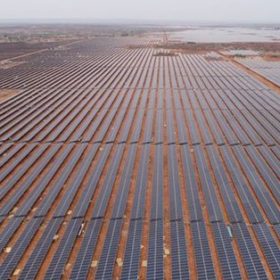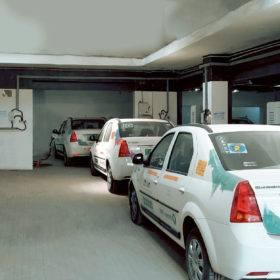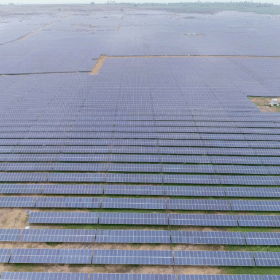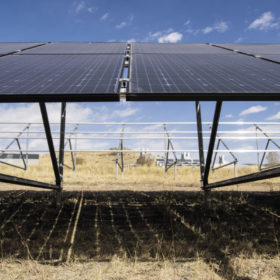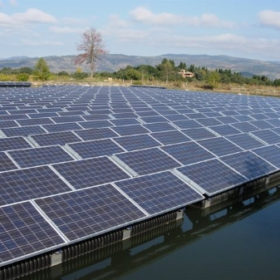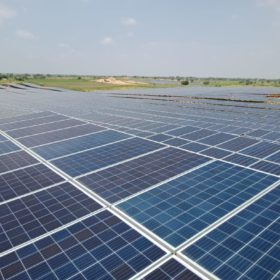Bidding extended for 275 MW solar in Uttar Pradesh
Developers now have until March 11 to lodge their interest in building 275 MW of grid-connected solar capacity in Uttar Pradesh Solar Park. The projects are to be set up on a build-own-operate basis.
Sterling and Wilson partners Enel X to enter EV charging infrastructure
Under the joint venture, Sterling and Wilson will provide end-to-end services for electric vehicle charging stations across India.
Ieefa proposes a three-pronged approach for grid firming
A new report discusses battery storage, green hydrogen, and flexible coal-fired power generation as key grid firming options for India as solar and wind are poised to form 51% of the nation’s total installed generation capacity by 2030.
Indian researchers improve perovskite-based solar cell structure
A numercal study by researchers at India’s Chitkara University has shown enhanced charge extraction in metal-perovskite-metal back-contact solar cell structure through electrostatic doping. The proposed design yielded a 59.4% improvement in power conversion efficiency over previously reported structures.
Madhya Pradesh: Ten-fold growth in renewable energy capacity since 2012
Today, the State has 5042 MW of renewable energy capacity, a ten-fold increase from 491 MW in 2012.
ReNew Power to merge with US firm for NASDAQ listing
Proceeds from the transaction with RMG Acquisition will be used to support ReNew’s growth strategy, including the buildout of its contracted, utility-scale renewable power generation capacity and to reduce debt.
Essar Power to set up 90 MW solar plant in Madhya Pradesh
The private power producer will set up the proposed solar plant in the Datia district in two parts of 33.7 MW and 56.17 MW. The project is expected to be completed by June 2022.
WBPDCL to get a 5 MW floating solar plant at its thermal power station
The floating solar plant shall come up at the Santhaldih Thermal Power Station in the Purulia district of West Bengal. Bidders have until April 12 to lodge their interest in its installation and commissioning.
Another bidding extension for 20 MW solar-plus-storage in Ladakh
The Solar Energy Corporation of India has allowed a two-week bidding extension for the installation of a 20 MW (AC) solar plant (50 MWp DC) with 20 MW/50 MWh battery energy storage in the union territory of Ladakh.
EESL tenders 100 MW solar EPC work in Maharashtra
Solar module manufacturers, grid-tied inverter manufacturers and PV system integrators with requisite EPC experience can bid for the grid-interactive PV capacity. The plants—to be set up in sizes ranging from 2 MW to 10 MW—shall come up in various districts of the state. Bidding closes on March 17.

